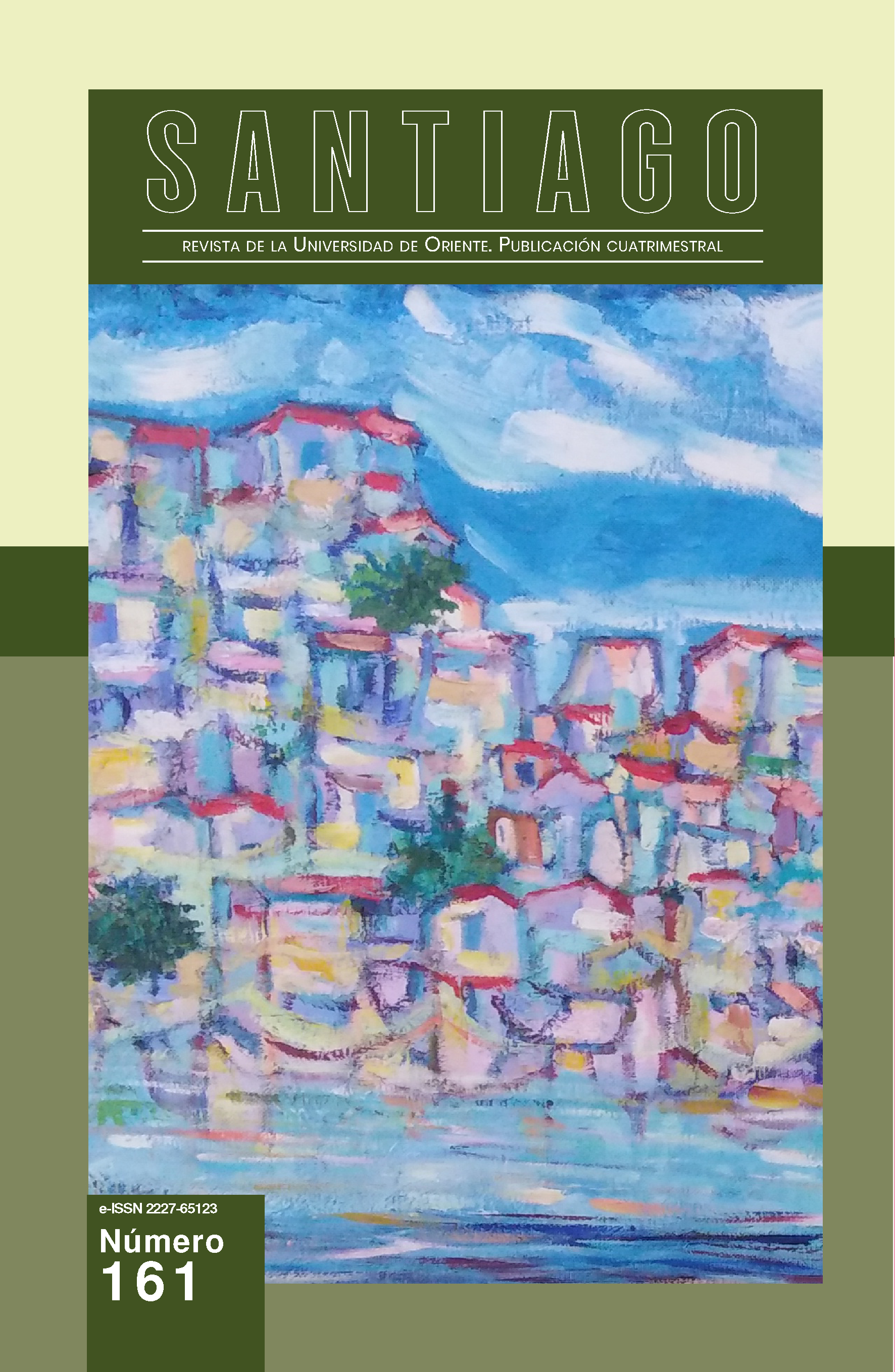Subjectivity from a gender perspective in Chilean female poetry
Keywords:
Subjectivity, enunciation, poetic speech, gender identity, Chilean female poetryAbstract
The article presents a study of Chilean female poetry as a situated discursive practice. It describes subjectivity in Chilean female poetry, from a gender perspective. The analysis contemplates the classification of the linguistic marks in the enunciation -subjectivemes and deictics-, the determination of the themes in the poems, and the establishment of the relationship between the uses of language and the context of production of the poetic discourse. The results show the characteristics of the construction of identity in Chilean female poetry and allow us to define the instances of enunciation and subjectivity in the corpus studied.
References
Arfuch, Leonor, (2002). Problemáticas de la Identidad. En Leonor Arfuch
(Comp.), Identidades, sujetos y subjetividades, Buenos Aires, Prometeo
Libros, 19 -41.
Bajtín, M. (1999). Estética de la creación verbal (trad. Tatiana Bubnova). México, Siglo XXI.
Bally, Ch. (1944). Linguistique générale et linguistique française. Berna: Francke.
Battaner, P. & López Ferrero, C. (2019). Introducción al léxico, componente transversal de la lengua. Madrid: Cátedra.
Benveniste, É. (1997). Problèmes de linguistique générale. París: Gallimard Bergstrom, J. (2013). Enunciation and sexual difference. Feminism and film theory (pp. 159-185). Routledge.
Bortignon, M. (2013). Marginalidad Y Enunciación: Poesía Chilena 1983–2009. Pontificia Universidad Católica de Chile (Chile).
Colas-Blaise, M. (2019). Subjetividad, subjetalidad y subjetivación: el devenir (del) sujeto. Tópicos del seminario, (41), 57-77.
Charaudeau, P. (2012). Las emociones como efectos de discurso. Versión. Estudios de Comunicación y Política, (26), 97-118.
Ducrot, O. (2001). El decir y lo dicho. Buenos Aires: Edicial.
Culioli, A. (2010). Escritos. Buenos Aires: Santiago Arcos Editor.
Filinich, M. I. (2016). Enunciación. Eudeba.
Fisher, Eddie & Santana, González, Y. (2020). Qualifications and Certificates v Practical Knowledge and Experience: Is There a Winner? Business and Economic Research, 10(2), 1-21.
Fuentes Rodríguez, C. (2004). Enunciación, aserción y modalidad, tres clásicos. Anuario de estudios filológicos, 27, 121-145.
García, P. (2005). Identidad de género: modelos explicativos. Escritos de Psicología-PsychologicalWritings, (7), 71-81.
Jakobson, R. (1988). Obras selectas I. Madrid: Gredos.
Kerbrat-Orecchioni, C. (1986). La enunciación.De la subjetividad en el lenguaje. Buenos Aires: Hachette.
Maingueneau, D. (2009). Análisis de textos de comunicación. Buenos Aires: Nueva visión.
Orozco Castillo, E. A. (2022). Experiencias en torno al emprendimiento femenino. Región Científica, 1(1), 20227. https://doi.org/10.58763/rc20225
Ruiz, S. I. G. (2019). Escribir en dictadura, poetas feministas chilenas. Hacia una genealogía. EntreDiversidades. Revista de ciencias sociales y humanidades, (13), 99-135.
Real Academia Española: Diccionario de la lengua española, 23.ª ed., [versión 23.5 en línea]. <https://dle.rae.es> [1-06-2022].
Popoff, J. G. S., & Cortina, A. (2018). Teoria enunciativa de Benveniste e semiótica discursiva: contribuições para a análise de textos. Revista do GEL, 15(2), 98-116.
Savio, K. (2022). Lengua, enunciación, discurso. Un estudio sobre la noción de subjetividad en algunas propuestas lingüísticas. Comunicación, 31(1), 47-63.
Traverso, A. (2021). Ser mujer y escribir en Chile: canon, crítica y concepciones de género. Anales de Literatura Chilena, (20), 67–90.
Van Dijk, T. A., & Mayoral, J. A. (1987). Pragmática de la comunicación literaria. Arco/Libros, (pp. 171-194)
Violi, P. (1991). El infinito singular (Vol. 2). Valencia: Universitat de València.
Downloads
Published
Issue
Section
License
Copyright (c) 2023 Nayra Simonó-Veranes

This work is licensed under a Creative Commons Attribution-NonCommercial-NoDerivatives 4.0 International License.
CC Reconocimiento-NoComercial-SinObrasDerivadas 4.0


.jpg)

_de_logo.jpg)












